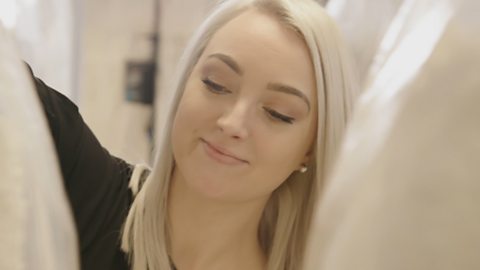Meet Lisa Duncan, the costume designer on Steve McQueen's Mangrove in the Small Axe collection of films on BBC One.
My name's Lisa Duncan and I was the costume designer for Mangrove. Well I originally studied fashion design and worked in magazines and advertising for many years. And then I decided I wanted to move into costume design for film and television, and theatre hopefully… so I decided to go and do an MA in costume design for performance.
Every day is different really in costume, but at the beginning of the job I start by researching, so I'll read the script, usually two or three times and start to make notes. And then I start looking for reference pictures to make mood boards to illustrate the costumes.It really depends on the project, but everything's fitted for each character so I'll do fittings with the actors and I might find some amazing vintage pieces that don't fit, so then we would get them copied. Or we might find some vintage pieces to use as reference,we might remake them in a different colour or add something, change something about the look, like the sleeves bor add decoration to them.
When I'm interviewing, it really helps if they have a costume or a fashion degree, and I think it's really important to study history of costume but also to learn to sew. My experience as someone who came through fashion, I learnt I can sew, I can pattern cut, I know how to make patterns, so that means that when I'm working with makers now, I'm able to explain how I want something made.
If you want to work in costume, study. Go and study costume. Learn about the history of costume, and fashion. You have to be prepared to work really hard. The hours are long, very long, you have to be really determined. I think it's important to kind ofjust be really respectful. You have to be quite persistent and y'know, reaching out to people, writing to people that you want to work with.
There are also trainee schemes, you know, most people come in as a runner or a trainee, that might not seem like the most exciting kinda glamorous thing at first but you have to work your way up. You've got to be prepared to work your way up. There's a lot to learn and I think as long as you're really focussed and hard working you'll get on.
I think it's really important to get experience. It's great to start on the smaller budget jobs. You know, it's hard, you might have to have another job as well to be able to afford to do those jobs 'cos they're not always very well paid, but when I did my MA I literally left and did dozens of short films basically which was really good fun. You make great contacts, you make your friends, you learn as you go along, because when you get onto a bigger production, you need to know about set etiquette and just knowing how to behave. There is a lot to learn. If you really want something I just think keep trying.
So as a trainee, you could be shopping or you might be helping on set. If you start at the beginning of the job, then you would be helping with research, potentially, that might involve doing online research, going to libraries, you might be shopping as well, or going to the costume house with the designer, helping to find the costumes. You also could be helping with fittings, there's lots of different jobs, but when it comes to filming, mostly as a trainee you'll be on the wardrobe truck and you would be helping with anything from laundry, labelling garments, potentially helping with the fittings… and there's a lot of organisational stuff to do, because we have to make continuity notes, so everything that's filmed we have to make notes of,and you really need to learn what everybody does. So, as a trainee you could be helping anybody.It really is basically whatever needs doing.
I think it's really important to have diversity because the actors are diverse, and often the stories are as well. When I'm researching a story, there are books and films and lots of different resources for research, but in the case of Mangrove, I was able to use my family photographs, talk to my father about his experience and other family members, and that brought something that was quite unique.That was just something that I could bring into it and I just think that when you're working with a diverse cast, why wouldn't you have a diverse crew as well?
It just, to have people from all different walks of life adds so much. My best career moment was definitely working on Small Axe.It was such an exciting job. When I was initially sent the scripts I was completely blown away. And knowing that Steve McQueenwas directing a series about the 1970s and 80s, the story of the Mangrove Nine is such an incredibly inspiring story and it just felt really important so this was definitely a real career highlight for me.
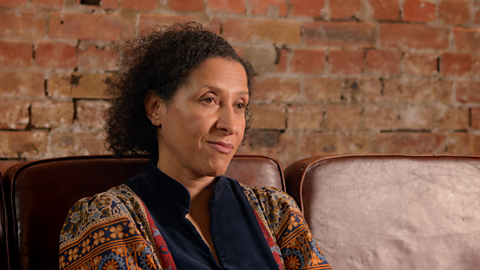
What does your role involve as a costume designer?
Every day is different really. At the beginning of the job, I start by researching all the stories I've been given. I read the script two or three times and make notes, and then I start looking for reference pictures to make moodboards to illustrate the costumes that I want to represent for each character. I'll also have shopping days where I'm looking for clothes.
Do you make any of the costumes?
It really depends on the project, but everything is fitted for each character so I'll do fittings with the actors. I might find some amazing vintage pieces that don't fit so we might get them copied, or we might find some vintage pieces to use as reference, that might mean making them in a different colour or changing something about the look.
How did you get into costume design?
I originally studied Fashion Design and worked in magazines and advertising for many years. And then, I decided I wanted to move into costume design for film, television and theatre. So I decided to do an Master of Arts in Costume Design for performance.

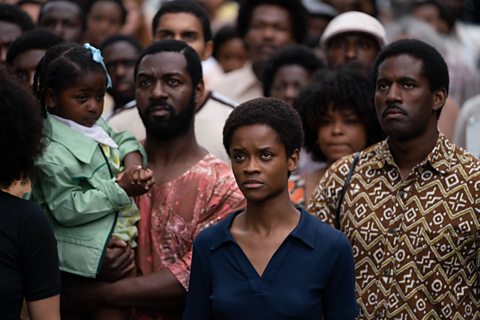
Do you need any qualifications?
It really helps to have a costume or fashion degree. It's important to study the history of costume and to learn how to sew. As someone who came through fashion, I learned how to sew and I know how to pattern cut. That means that when I'm working with makers now, I'm able to explain how I want something made.
What's the best advice for someone who wants to be a costume designer?
You have to be prepared to work really hard. The hours are long, and you have to be very determined. It's important to be respectful. You have to be quite persistent and reach out to people, for example writing to people you want to work with. There are also trainee schemes. Most people come in as a runner or as a trainee. That might not be the most exciting or glamorous thing, but you need to work your way up.


What to expect if you want to be a costume designer
- Costume designer average salary: £16,000 to £35,000 per year
- Costume designer typical working hours: 35 to 42 hours per week
What qualifications do you need to be a costume designer?
You could get into this role via a university course or a college course (such as a Level 2 Certificate in Fashion and Textiles, or a T-level in Craft and Design - England only - from Sept 2023). You can also do an apprenticeship or work towards the role.
Sources: LMI for All, National Careers Service, GOV.UK
Want to know more
- Check out Warner Bros. Creative Talent for scholarships, apprenticeships, work and training placements, mentoring and masterclass opportunities
- Take a look at the ScreenSkills guide to become a costume designer.
This information is a guide and is constantly changing. Please check the National Careers Service website for the latest information and all the qualifications needed and the GOV.UK website for more on T-levels.
For careers advice in all parts of the UK visit: National Careers Service (England), nidirect (Northern Ireland), My World of Work (Scotland) and Careers Wales (Wales).

Work experience in your area
Find work experience placements with Workfinder.
Tips and advice
Help with interviews, writing a CV and all things work experience related.

Colleen: costume designer. video
Meet multi-Oscar-award-winning costume designer, Colleen Atwood, who designed the costumes for the Fantastic Beasts films.
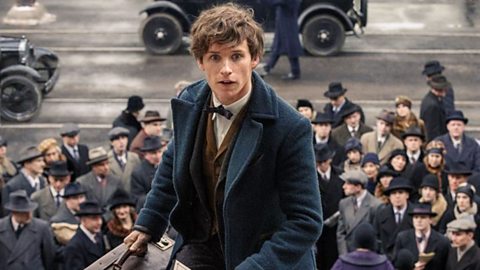
Sophie: wardrobe technician. video
Sophie works at the Royal Opera House.
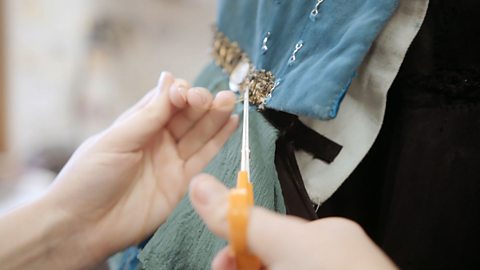
Deborah: wedding dress designer and shop owner. video
Deborah's time working part-time in a bridal shop inspired her to open her own wedding dress business.
